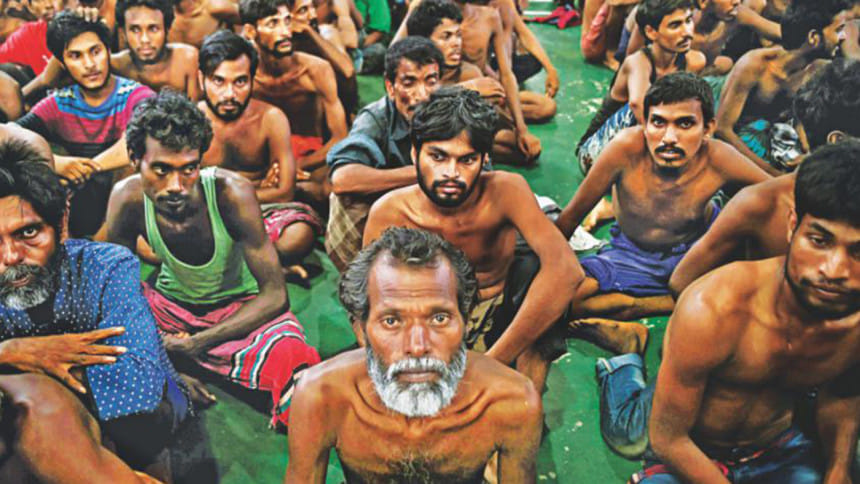Asean launches fund to host trafficking victims

Southeast Asian countries Thursday launched a fund to share the cost of hosting human trafficking victims, after a regional migrant crisis saw victims ping-ponged between countries reluctant to accept them.
In May a Thai crackdown on the lucrative smuggling industry prompted the traffickers to abandon their human cargo at sea, sparking a crisis that saw more than 3,500 Bangladeshi economic migrants and stateless Rohingya Muslims from Myanmar land in Malaysia and Indonesia.
Malaysia's Home Minister Zahid Hamidi told reporters after a day-long meeting that all 10 members of the Association of Southeast Asian Nations (Asean) and some international organisations will contribute to the fund, which will be managed by the Jakarta-based Asean secretariat.
"The meeting supports the establishment of a trust fund ... to support the humanitarian and relief efforts involved in dealing with challenges resulting from irregular movement of persons in Southeast Asia," the grouping said in a statement.
Representatives of the US State Department and the UN Refugee Agency also participated in the closed door meeting.
Malaysia has proposed that each Asean member country make an initial US$100,000 contribution towards the fund, the minister said, adding that Singapore has pledged $200,000.
As the migrant crisis unfolded in Southeast Asia, Indonesia and Malaysia were initially reluctant to allow the boat people to land on their shores, but relented under heavy international pressure.
They have now taken in the majority of the victims, many of whom had spent months a drift in cramped and barely seaworthy boats.
Zahid singled out Myanmar, which previously snubbed invitations to attend regional meetings to address the migrants issue, saying the country had given assurances that it would "work with other Asean countries" to fight human trafficking syndicates.
The regional bloc also agreed to beef up intelligence sharing among law enforcement agencies in an attempt to track down the traffickers, he said.
Richard Towle, the UN refugee agency's representative in Malaysia, hailed the measures by the Southeast Asian nations and urged coordinated regional response to combat the traffickers.
"We believe Malaysia is bearing a burden of looking after a lot of people but it shouldn't bear it on its own," he told reporters.
"We know that unless these (measures to fight traffickers) are dealt with soon, the smugglers and the traffickers will be back in business, as creative as they always are, so steps need to be taken."

 For all latest news, follow The Daily Star's Google News channel.
For all latest news, follow The Daily Star's Google News channel. 



Comments